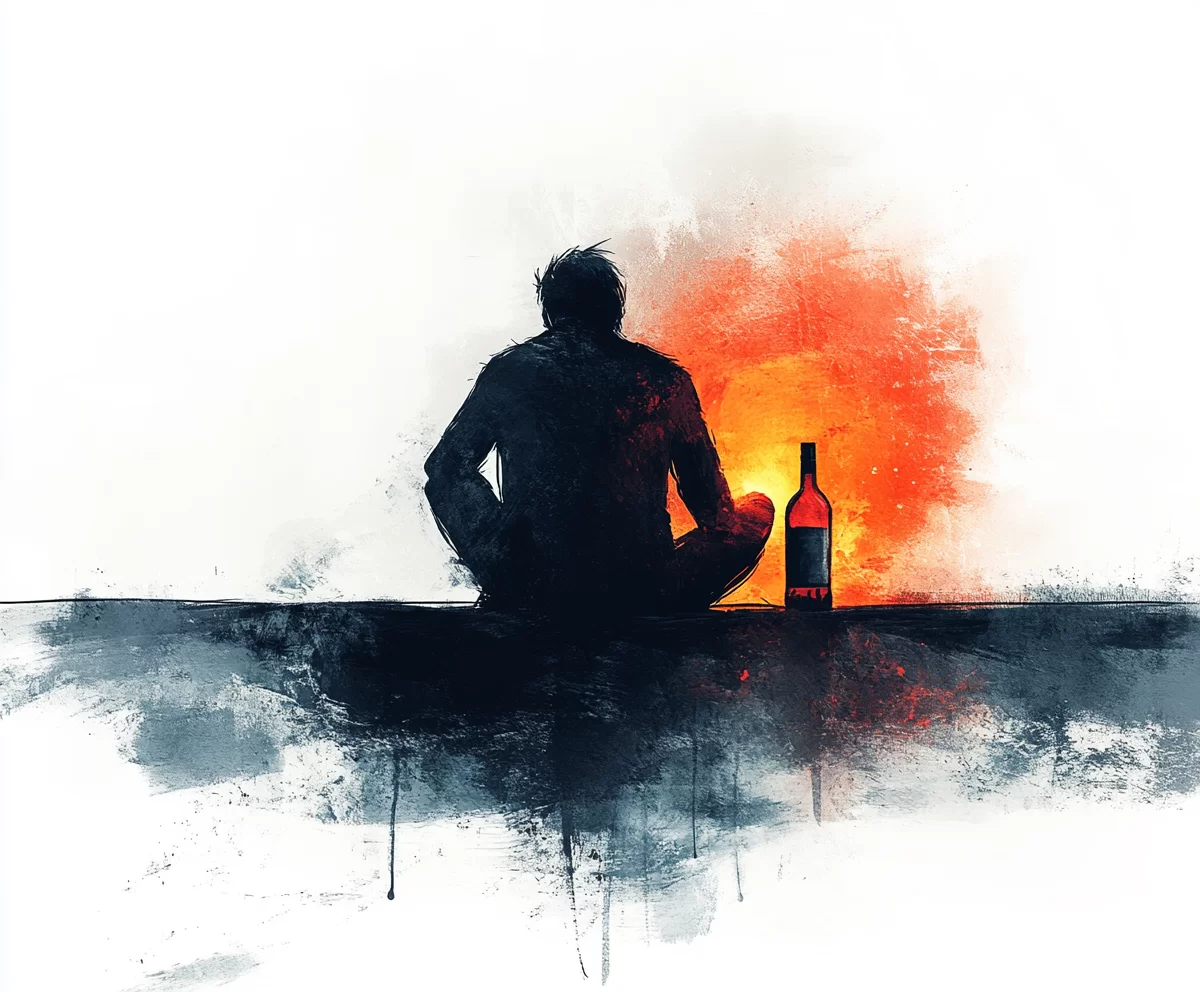
Addiction and Men’s Mental Health
Addiction and mental health are like two wolves fighting in the same cage. You need one, and the other gets stronger. It’s something I know all too well. There’s no pride in saying it, but just this past Sunday, I was there again. I cracked open a box of wine—three bottles’ worth—and downed it alongside six German beers. It’s not a boast. It’s the truth of what I’m still fighting. Some days, it’s like the drink is calling to me, whispering promises of numbness, just a bit of quiet from the constant noise. That temptation is still there, lurking around the corner, even after all these years of battling.
The Link Between Addiction and Mental Health
Addiction’s grip is strong, and when it’s mixed with mental health struggles, the hold becomes vice-like. For me, drinking has always been a way to put the brakes on my brain, to drown out the noise of anxiety, stress, and self-doubt. But the so-called “relief” that booze brings is only temporary, leaving more destruction in its wake than comfort. That “comfort” comes with costs: job loss, broken relationships, and damage to the body. It’s a cycle that feeds itself, pulling you deeper. You feel isolated and ashamed, and then you drink to escape, and the isolation only grows.
When I’m wrestling with dark days, depression feels like this fog, numbing me to everything else. Alcohol was, and sometimes still is, my way of coping. I’d down a bottle to silence the noise, but it would end up making everything worse. This isn’t something that just one drink can soothe. It’s a tangled knot of trauma, shame, and the frustration of never quite finding peace.
The Impact of Addiction on Men’s Mental Health
The thing is, when you’re a man fighting with addiction and mental health issues, it’s easy to fall into patterns of isolation and silence. Society doesn’t exactly encourage men to openly talk about their feelings or admit that they need help. We’re told to “man up,” keep it together, and not show weakness. But addiction doesn’t care about pride. It chips away at you, one drink at a time, one hangover at a time until you’re left with little but a shell.
Trauma and Self-Medication
Trauma’s a sneaky bastard. You think it’s buried, then something happens—a smell, a sound—and you’re right back there, trying to escape from the pain. I went through my fair share of trauma, things I won’t go into detail here, but each of those events has left scars. Alcohol became my armour, my self-prescribed medicine. The trouble is, while alcohol numbs the pain momentarily, it keeps the wounds open and festering. Addressing that trauma without substances has been, without a doubt, the hardest part of this journey.
Depression and Anxiety
On those days when I’m weighed down by depression, the drink seems to offer a quick fix. There’s a hopelessness that settles in, telling me I’ll never break free. The drink dulls the pain but leaves a trail of guilt and self-loathing in its place. And so, the cycle continues. You drink to forget, then feel worse, and so you drink again. It’s exhausting. Breaking that cycle is like trying to claw my way out of a pit.
Social Isolation
Over time, addiction pushed me further into isolation. It’s a painful irony that the thing I turned to for comfort only drove a wedge between me and everyone I cared about. Friends drifted away, family became distant, and I found myself alone, facing the consequences of my choices. Even now, the shame can feel overwhelming. Some days, I don’t reach out because I don’t want people to see the mess, the struggle.
Financial Strain
Drinking isn’t cheap, and the cost isn’t just financial. But the financial strain only adds to the burden. I remember times when I couldn’t pay the bills because I’d spent what I had on booze. That stress, the weight of knowing I was prioritizing my addiction over stability—it’s another layer of self-hate that fuels the cycle. In the end, it’s a costly and vicious loop.
Breaking Free and Building Resilience
Recovery is more than just quitting the drink. It’s about rebuilding a life I want to live. Every day I resist, I choose something better. But it’s a choice I have to make constantly, with every bottle on the shelf, every offer of a pint. And when I falter, like on Sunday, I have to remind myself to keep going.
I’ve found solace in nature, in the cold water swims that ground me, that brings me back to myself. And I’ve found strength in sharing my journey, in being open about my struggles with addiction and mental health. That openness isn’t easy, but it’s necessary. I want other men out there to know they’re not alone in this fight.
Conclusion: Seeking Help is a Strength, Not a Weakness
Admitting you need help is one of the hardest things to do, especially for men. But reaching out isn’t a weakness; it’s a strength. If you’re struggling with addiction, with the drink, or with mental health, don’t let shame keep you isolated. I’ve spent years fighting, sometimes winning, and losing, but always moving forward. Seeking help doesn’t mean you’ve failed. It means you’re strong enough to fight for something better.
This is raw, real, and deeply personal—just like Ian’s journey. Each setback, each battle with the bottle, is a reminder that healing is a process, not a destination.